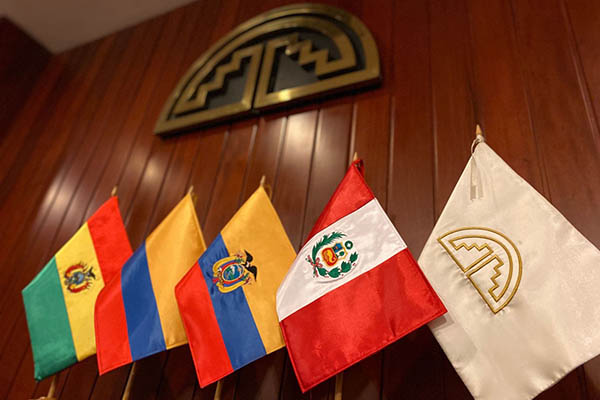 What is an Andean opposition?
What is an Andean opposition?
Decision 486 – Common Regime on Industrial Property, regulates various aspects of trademark regulation for the member countries of the Andean Community: Peru, Colombia, Ecuador, and Bolivia. Among those aspects is the so-called “Andean opposition.”
Andean opposition is a concept that arises from the possibility of any Member Country to file an opposition against the application for the registration of a trademark that is being processed in another Member Country. For this, the opposition basis trademark must be registered or pending; for the latter case, with a better right of priority over time with respect to the trademark object of opposition. Additionally, it is required to present in parallel an application of trademark registration in the Member Country where the opposition is filed, to prove real interest.
Regarding this last aspect, the Specialized Chamber on Intellectual Property of the National Institute for the Defense of Competition and the Protection of Intellectual Property (INDECOPI) issued a mandatory compliance precedent in relation to the criterion of real interest.
Real interest
The last paragraph of Article 147 of Decision 486 states:
In both cases, the opponent must prove his real interest in the market of the Member Country where he files the opposition, having to request the trademark registration at the time of filing it.
It is important to highlight what is understood by real interest in the market. In Process 76-IP-2020, the Andean Community Court of Justice said:
It should be noted that one of the changes introduced by Article 147 of Decision 486 was the requirement of the accreditation of real interest in the market of the member country where the Andean opposition arises. This is accredited through the presentation of the application for the opposition trademark registration at the time of filing an Andean opposition. If this requirement is not met, the aforementioned Andean opposition would be rejected because the real interest in the market was not effectively credited.
The aforementioned real interest accreditation has the objective of avoiding the abuse of the right of opposition, as well as the undue obstruction of the registration of signs in the national market under the justification of the defense of signs that would not have a clear penetration in the relevant market. The premise is the following: whoever presents Andean opposition must demonstrate that the market of said member country is really in their interest.
In this way, it is established that real interest is, in concrete terms, a signal of interest in the market in which the Andean opposition is filed and is credited with the mere presentation of the application for the registration of the opposing trademark.
Mandatory Compliance Precedent
On June 17, 2020, through Resolution No. 0458-2020 / TPI-INDECOPI, the Specialized Chamber on Intellectual Property of INDECOPI issued a precedent of mandatory compliance on the criterion of real interest, under the following terms:
Article 147 of Decision 486 refers to the case in which the real interest is credited by means of an application for registration; however, it is possible to prove said interest with a trademark registration already granted in the Member Country where the opposition is filed.
In this sense, if the opposition’s trademark registered in one of the Member Countries has been requested or is registered in Peru, its real interest in the Peruvian market is fully accredited, which is why the Andean opposition should be considered validly filed and give it the treatment that corresponds to it according to law.
It should be noted that, according to the aforementioned rule, the accreditation of the real interest in an Andean opposition will be evaluated at the time of its interposition, that is, at the stage in which the Authority examines its origin, which is why the destination of the registration application filed or the trademark registration with which you have accredited said interest is not relevant when determining whether the Andean opposition should be protected or not, since it is not possible to demand additional requirements that are not established in the norm.
Consequently, the Chamber broadens the criterion of accreditation of the real interest, giving flexibility to the evidentiary action of the opponent, taking into account the difficulties involved in exercising the figure of the Andean opposition, as indicated by the Andean Court of Justice in Process 76 -IP-2020.
Conclusions
The mandatory compliance precedent creates a much more flexible scenario for those trademark owners who wish to exercise the figure of the Andean opposition. This is a positive sign as the analysis goes beyond the formality of the Andean norm.
Therefore, there are two key ideas that the precedent develops:
- In the event that the opponent already has the registration of the opposition basis trademark in the Member Country where the Andean opposition is filed, the real interest will already be credited.
- The destination of the trademark that proves the real interest will not be relevant when analyzing the origin of the Andean opposition.
Contact us
